|
Kudos to Avi Mitzner for breaking new ground as Shearith Prime visited New York City! It was the perfect combination of planned activities and free time to do your own thing.
Friday night started with services at the beautiful B’nai Jeshurun Synagogue. B’nai Jeshurun, a nearly 200 year old non-affiliated synagogue, which was conveniently located walking distance from the Lucerne Hotel, where we stayed. The beauty of the architecture in this historic space transported us to feeling like we might be in Morocco. The 100+ Shabbat attendees belies the warmth of this congregation, which included a chain of dancing which broke out during the service. We were eager participants in the dancing. Services were followed by a fantastic dinner at Talia's Steakhouse, which appealed to both foodies and those who keep kosher. We had nearly the entire restaurant to ourselves and the four-course meal was Mediterranean-influenced and it was much more than we could finish. Saturday morning we attended services at Romemu, an intimate and hamish congregation that welcomed us with open arms and honored Avi with a Torah reading. The service was supplemented with music including drums and singing and the vibe was filled with ruach. After services was a delicious kiddush lunch of bagels, lox, tuna salad, egg salad, fresh fruit and baked goods. Rabbi David Ingber, the rabbi at Romemu shared his story which led him to Romemu as well as his vision. He also engaged in a Q & A with us. The remainder of Saturday was free time. Everyone was on their own to explore the city, visit family or friends, or just get some rest. On Sunday, we met at the Longacre Theatre and posed for a quick group photo before seeing Leopoldstadt, a play set among the Jewish community of Vienna in the first half of the 20th century and follows the lives of a prosperous Jewish family who fled the pogroms. All of the activities were walking distance, so getting around was easy and flexible for those moving on a different schedule than the majority. It was an action packed couple of days, but the schedule was flexible to allow free time to connect with family or friends or just do your own thing while visiting New York City. Many people also either arrived early or stayed late to catch a few extra Broadway shows. We are happy to see that this trip appealed to a new group of Shearith Primers that had not previously participated in our Prime programming, but we do hope to see more of them. A BIG THANK YOU to Avi Mitzner for conceiving the idea for this trip, working hard to find unique experiences for us to enjoy and accommodating special requests - like extra tickets for local friends and family to join us for the show. It was a tremendous success. Written by Melanie Morris A supplemental note from Avi: A big thank you to Rabbi Roffman for bringing this idea to me and for helping me bring this to fruition.
1 Comment
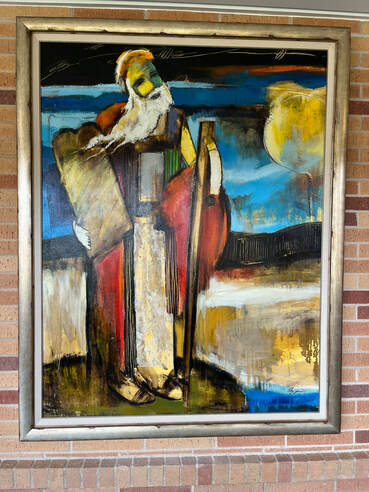 Recently, Shearith Israel members Neal and Cherie Small bought Helen Zarin’s painting Moses with Tablet from an exhibit at The Museum of Biblical Art and generously donated it to the shul. The mixed media painting is now on view outside of the Staff offices on the east side of the building. We encourage all to view this new addition to the Shearith art collection. The artist, Helen Zarin was born in Shirae, Iran in 1970 and now lives and works in Baltimore, Maryland. As a high school student, Zarin studied with the well-known Persian artist and teacher, Saber. Later she enrolled in the Art and Culture Society, a national organization for gifted Persian Artists. As a student of Art and Culture, she refined her skills in the various mediums, especially pastels and oils. Conditions in her native country eventually compelled Helen to turn elsewhere for creative nourishment. "Hard work and talent are not enough for an artist to progress and blossom, creative freedom in the right atmosphere is essential," she remarked. In the pursuit of these artistic prerequisites, she journeyed first to Europe where she displayed her works in Vienna before coming to the United States in 1993. She has continued her education first in New York and currently in Baltimore, Maryland where she resides. Bonding Hand in Hand!
Never pass up an opportunity to show off your grandkids! Grandparents bonded with their grandkids and fun was had at Yad B'Yad this December. The program was led by Sarah Lipinsky, Director of Education for Shearith Israel. We played games, learned some things about science, and bonded with our families. What a great time! The Shearith Family came together for a moving and uplifting celebration to Burn the Mortgage! In May, with a remaining balance of $2.8 million dollars on our mortgage, the Fonberg family stepped up with a $1.4 million-dollar matching gift to pay off our mortgage once and for all. Because of the generosity of our congregation, and the dedicated work of our Burn the Mortgage Campaign Chairs, Sherry and Kenny Goldberg, we were able to retire the debt and literally burn the mortgage once and for all! See video below of the Burning of the Mortgage celebration. Scroll down to see a full list of all the donors. In this era of cultural and political polarization, it is more important than ever that we celebrate events like the 5th Annual Interfaith Thanksgiving Service. Faith leaders from 5 major denominations and representatives from the Thanks-Giving foundation and the North Dallas Shared Ministries led a meaningful and beautiful service at St. Rita Catholic Church in Dallas on November 17, 2022.
The theme of this year’s service was “Celebrating God’s Faithfulness”. The Interfaith Thanksgiving was initiated in 2018 and was hosted by Congregation Shearith Israel that year. In subsequent years it has been hosted by various denominations and will continue next year at University Park United Methodist Church in Dallas on November 16, 2023. “Going back to 2018 when we got this service started and hosted it here at Shearith Israel, it has been a source of profound joy to me each year to visit other area congregations of various faiths and denominations to take part in this uplifting experience. Living in a society rife with division, the fact that we are able to share in the spirit of kinship, community and gratitude despite our different religious beliefs is a precious gift indeed,” said Rabbi Ari Sunshine. Kyle Ogden, President and CEO of the Thanks-Giving Foundation opened the service. The Thanks-Giving Foundation, established in 1964 and housed in Thanksgiving Square in downtown Dallas, has as its mission to be, “…a place where we can all stand together on common ground, reflect on gratitude and appreciate the diversity of our community.” The service was accompanied by St. Rita’s choir and organist, Joshua Boyd. Following the service there were cookies and refreshments and, of course, fellowship amongst the many different religious leaders and their congregants. Among the particpants attending were: Joshua Boyd, organist, St. Rita Catholic Community Rev. Holly Bandel, Executive Associate Minister, First United Methodist Church, Dallas Dr. Alfred Calabrese, Director of Music Ministry & Parish Liturgy Bishop Keith M Earl, Dallas Texas Stake of the Church of Jesus Christ of Latter-Day Saints Kyle Ogden, President & Chief Executive Officer, Thanks-Giving Foundation Judy Rorrie, Executive Director, North Dallas Shared Ministries Rev. Joe Stobaugh, Senior Minister, University Park United Methodist Church Rev. Dr. Andy Stoker, Vice President, Chief Engagement Officer, Thanks-Giving Foundation Imam Azhar Subedar, Spiritual Leader of the Islamic Center of Collin County Rabbi Ari Sunshine, Senior Rabbi, Congregation Shearith Israel Rev. Joshua Whitfield, Pastoral Administrator, St. Rita Catholic Community 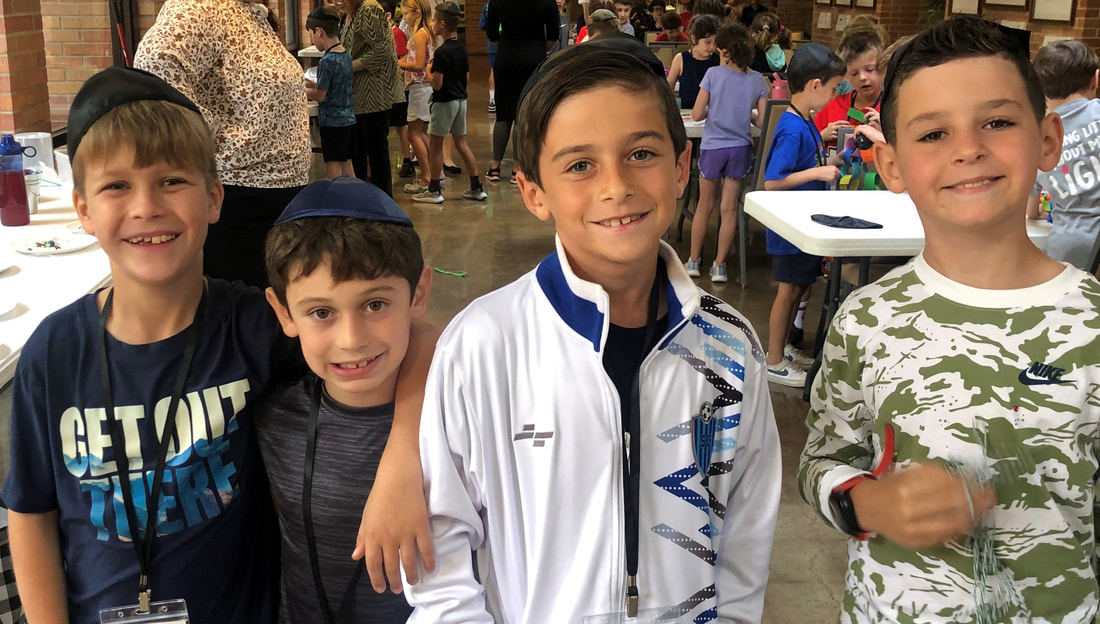 Our youth High Holy Day Camp was fantastic! Several parents told us that their child did not want to leave shul! We saw kids from religious school and day school form strong friendships, where one 3rd grader told us he was upset that he wouldn’t see his new friends for a whole year. However, we will have more programs this year for day school and religious school students to be together and strengthen those friendships. We were also amazed that close to 200 kids took part in the camp. Some of the older students went through the camp stations voluntarily with their friends, like answering reflective questions in Yom Kippur Jenga or participating in text studies! One of the most exciting parts was watching one of our 3rd graders hold the Havdallah candle after Neilah. He was nervous, but so proud of himself! High Holy Day Camp is a positive experience linking our youth and Judaism to learning about the holidays and making sure that shul is a happy place for all ages. 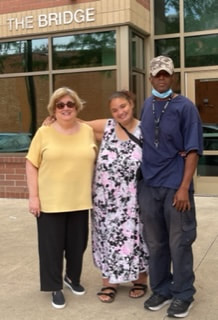 Thanks to the ongoing generosity of our congregants, Ladder Project clients are doing well. Benito and his wife Monica love their Vickery Meadow apartment, which Congregation Shearith Israel completely furnished, and Benito has started his new, full-time job in the maintenance department at Presbyterian Hospital of Dallas; his goal is to save enough money to buy a used car. Our Afghani family just expanded with the birth of a baby girl. Dad Keramuddin, who is working in food service for Presbyterian Hospital, recently obtained his drivers license and bought a used van with his savings. The family of six will need to move into a three-bedroom house or apartment in June when their apartment lease expires; if any congregant has access to North Dallas housing please let us know. Wendy, age 56, is a new LP client: After serving on ships for 16 years in the U.S. Navy, Wendy returned home to Plano to care for her ailing parents and brother. After serving as their caretaker, Wendy lost the family home in 2018 due to liens and medical debts. Unable to pay her apartment rent on a warehouse income of $10.50/hour, Wendy moved to the Austin Street Shelter in March 2022. We are currently looking for both a job (she is currently working part-time doing CAD drawings for solar panels and recently graduated from an 8-week medical equipment sterilization course) and a North Dallas apartment for her. All of her family's belongings are in storage awaiting a new home. Please contact Ladder Project's Chair Laura Miller if you have any housing, used car, or job ideas for our clients. Congregants will have a chance to meet many of our LP clients at CSI's Hannukah Shabbat dinner on December 16. Please welcome them to the CSI family. They will want to thank you in person for all you have done for them. We also welcome our newest Ladder Project volunteers: Danielle Gervis, Joshua Gold, Melanie Morris, Eric Roseman, Olivier and Sandra Sebag, and Bill and Helen Sutker. 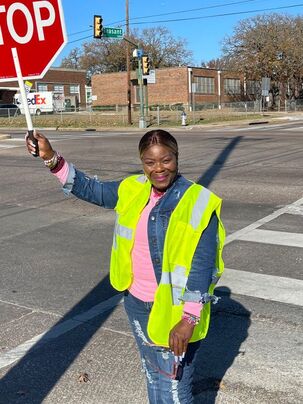 December 17, 2021 There is a woman currently living at the city's homeless shelter, The Bridge, in downtown Dallas who needs your immediate help. This email is long, but it is important. It's the holidays, and we are in a position to literally take a woman off the streets of Dallas and get her into a warm, safe place to live by month's end. With your help. It has been awhile since the eight of us who oversee The Ladder Project have reached out to you with any appeals. The COVID crisis kept us from taking on new project participants since our model is to work intensely one-on-one with people to find them jobs and apartments and furnish them through your donations. In the past few months, we have rekindled our efforts. We partnered with two new homeless organizations -- Catholic Charities and OurCalling -- both of which help thousands of homeless people in crisis, often referring them to other non-profits for additional services and shelter. OurCalling is especially impressed with our model -- a caseworker recently told us that while only 10 percent of the homeless who come to her for help fit our model (no alcohol or drug addictions, no serious mental illness, must be willing to work) she knows of no other program that creates a total safety net for someone short term, giving that person housing, work, transportation and medical help all in one fell swoop, thus affording them a real chance of fundamentally restarting his or her life. Although we have received several referrals recently, one appears to be a good fit, and we would like to introduce her to you. Denise is a 55-year-old single woman, who grew up in McKinney as one of 10 children, and has been living at The Bridge since she lost her job in home health care at the start of the pandemic. She lost her older son in a motorcycle accident three years ago, and her younger son has struggled and remains largely out of touch with her. When she lost her job, she was living in an apartment in South Oak Cliff with her disabled brother and a friend, splitting the rent three ways. The friend moved out, her brother moved to a men's rooming house in South Dallas, and Denise found herself living alone in the apartment with no income to pay for it. Although laws passed during COVID prevented her from being evicted, Denise chose to move out when crime escalated at her complex, and she realized her rent debt was mounting. She moved in May 2020 to The Bridge as a temporary measure -- she had never been homeless for more than one night before -- but with no car and no money could not find a way out. What impresses us most about Denise is her optimistic, sunny demeanor and her ability to motivate herself, despite her circumstances. This past August, she got a job as a crossing guard at John Quincy Adams Elementary School in Pleasant Grove. Every week day, rain or shine, she rode the bus from the shelter in downtown Dallas to the school in Pleasant Grove for her two shifts -- 7 to 9 am and 2:30 to 4:30 pm. She loves her job, especially her relationships with the children who she shepherds across a busy intersection every day. Determined to better herself, and get transportation that would enable her to find a second job, she saved money to put a down payment on a used car, which she purchased in October. And she applied to the Dallas Housing Authority for a housing voucher to subsidize her $687/month income so she could get an apartment. But life's challenges overwhelmed her again. The DHA housing voucher was set to expire on December 19, and she had not secured an apartment due to application fees and red tape. The 2010 Mazda3 that she had purchased at a used car lot in South Dallas with 178,000 miles on it was in such disrepair that the day she bought it she was unable to get a state inspection because the mechanic said the car had too many engine and brake problems to pass. Denise spent several hundred dollars in repairs trying to get the car qualified for inspection, but to no avail. The dashboard is still lit up with warning lights, the brakes are still not working properly, and Denise has been afraid to drive it. The car's registration expires this week. She was badly taken advantage of: she paid $850 down, and was required to pay $200 every other week until May 2023 ($9,056 total). The car insurance is $75/month, her phone bill is $50/month, and last month (before she met us) when bills overwhelmed her, she went to a payday loan shop in Oak Cliff and borrowed $300. (The terms were incredible: $84 every other week for 12 weeks, with a balloon payment of $398.63 in May 2022 -- $1,406.63 for a $300 loan.) We have been working daily with Denise for the past 10 days, racing against the clock to unwind her blatantly usurious financial obligations. We paid off the remainder of her payday loan ($385). We got a 30-day extension on her DHA housing voucher and toured a 55-and-older apartment complex in Casa Linda, six miles from Denise's school and currently under renovation. We picked the best available apartment, put down a $135 application fee and security deposit, and we are working with DHA administrators directly to get expedited approval and hopefully move Denise into her apartment by the end of the month. We are actively engaged with DISD administrators about getting additional work at DISD -- they feel the best fit is a $13.50/hour school bus monitor position (where she can train to become a $22.50/hour bus driver) or a $13.50/hour cafeteria worker (we have spoken to the school where she works as a crossing guard, and there is currently a vacant cafeteria position). NOW WE NEED YOU. We need a car for Denise. We are hoping that someone in the congregation has a car that he or she is willing to donate to the shul as a tax write-off. Perhaps you have a mother-in-law car, or a teenager's car, or a car that you were thinking of trading in for a new car -- but would be willing to donate instead as a great mitzvah. If you currently have a car for sale, perhaps we could negotiate! (If no congregant has an available car, we will be pursuing buying a small, used car with Ladder Project funds that you all have generously donated in the past.) This request has become URGENT. Last week we began negotiations with the owner of the car dealership, Michael Laney of Credit Auto Sales, 1211 S. Barry Avenue. Although he initially refused to answer any of our calls or emails, we obtained his cellphone number through Whitepages.com ($9.99 for one report). We told him that the car was unsafe and should not have been sold, especially at an exorbitant price, in its current condition. He was dismissive, stating that complaints come to him all the time. He refused to refund the $1,250 Denise has paid so far (even knowing she was homeless), but did agree after 10 calls to take back the car and void her Contract of Sale. Although we had hoped to return the car to him earlier this week, when the next $200 was due, Denise underwent emergency surgery to remove two broken teeth after multiple visits to Parkland Hospital for severe pain and infection. (Dr. Howard Kessner has generously offered to provide Denise's dental care pro bono going forward.) Despite our best efforts and with no warning, the car dealer repossessed the car late last night at The Bridge. We have purchased Denise a monthly DART bus pass to get to work, but we need to get her a car to put all the other pieces of our plan for her together. We will also be reaching out to the congregation in a few weeks when Denise moves into her apartment. We will need to fully furnish her one-bedroom apartment, including all household and kitchen items. She has no belongings. Please email [email protected] if you have any leads on a car. If you have good, used furniture or household items you know you will be able to donate later this month (not until then because we have no storage), please include that information also. Thanks everyone for your continued support of The Ladder Project. Update: Marom-Kampala Jewish Community in Uganda
Our beloved congregant Shoshana McKinney, who lives with her husband and son in the Marom-Kampala Jewish community in Uganda, is back in Dallas for a short while and spoke to our Shearith community during Shabbat Morning services this past weekend, offering thanks for our continuing generous support and an update on the current situation. Your Help is Still Needed In the last couple of months Shearith Israel has raised funds to help the Marom-Kampala community with their education project to enable 18 students to learn virtually through the continued Uganda Covid lockdown. Each student needs a laptop, headset, a personal internet connection, and writing notebooks to continue in school. The cost is $1,144 per student for a total of $20,591. To date, we have raised $12,110 for this education project, leaving $8481 remaining to be raised. In the aftermath of Shoshana’s speech to the congregation on Shabbat, one of our congregants immediately and generously committed to an $1,144 donation to take care of the needs of one of the remaining students. Please consider matching his commitment or combining with other family and friends to sponsor a student together. Your contribution will make a huge difference in these students' lives. As Shoshana said powerfully and movingly this past Shabbat, “the People of the Book should be able to read books.” Please, click below to donate to these young Jewish students in Uganda. Please donate at https://bit.ly/Shearith-Uganda 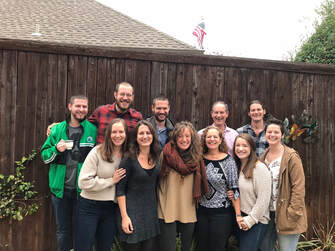 If you would have met Avi Mitzner back in his elementary school days, you might have thought he was headed toward a career as a rabbi. He attended an intensive Jewish day school and went to Yeshiva University. But Avi ended up at Law School at the University of Maryland, and being a Rabbi was never his chosen career path—until now. This past June marked twenty years at Shearith for Avi. "It was about two or three years into my tenure here that I began thinking about becoming a rabbi," Avi said. "But at that time, it was completely impractical. I was busy with young children, and we would have had to move to whatever city the school was in. No one was learning on Zoom back then! As my children grew up and as more programs went virtual, I toyed with the idea of finding a rabbinic program. In the end, it was Rabbi Roffman who found the school for me. On my last trip to Israel, I got a text from Adam about a new program designed for working Jewish professionals. Adam wrote that he personally knew some of the teachers and because he respected them, he thought the program was worth further investigation. "Then, Rabbi Sunshine contacted some of the staff on my behalf. After his discussion, he said it sounded like the program was designed with someone like me in mind, because I have a comprehensive background in Jewish knowledge and extensive experience working at a synagogue. "What this program offers in addition to the advanced Jewish learning, is the practical study of being there pastorally for a congregant. Many of my classmates will share this background, as well, so I'm excited for a cohort of learners who will also have a deep knowledge of Judaism and are moving to a new path." Avi will begin his studies in January of 2022 and the program goes through December of 2023. "After I complete my rabbinic studies, I will stay at Shearith Israel," Avi explains. "I'm thrilled that when I finish this program, it will allow me to be there for our congregants in a full capacity at all their lifecycle events, from a bris to a b'nei mitzvah, to weddings, and funerals." Avi started working part-time at Shearith in April of 2001. Within a couple months, he took on a full-time role. "Since then," Avi says, "I've been fortunate to have the opportunity to really grow into this position. I've also been lucky to work with an amazing group of people including all the klei kodesh and lay leadership, who have truly supported my new journey." When asked what wife Shelley thinks, Avi laughs and says, "she said, what took you so long?" It's a fair question, but Avi found the right time—a time when his kids are independent and grown, a time when learning at an esteemed school can happen in Dallas, and a time when Shearith is poised with an amazing team of klei kodesh and lay leadership. "Exciting things are on the horizon," Avi says, "and I'm thrilled to be supported on my new journey by my dear friends, now like family, that are part of my Shearith life." Shearith President, Irving Prengler says, "We are so happy for Avi to achieve this dream. It will be such a wonderful and meaningful accomplishment!” Congregation Shearith Israel will celebrate Avi’s 20th Anniversary with a special Shabbat and Kiddush lunch on Saturday, December 11. We hope all our Shearith family will join us to celebrate Avi. Additionally, you may donate in his honor to a fund that will go directly toward his Rabbinic school costs. Donate HERE |
Details
AuthorsShearith Israel clergy, staff and congregants share Archives
April 2023
Categories
All
|

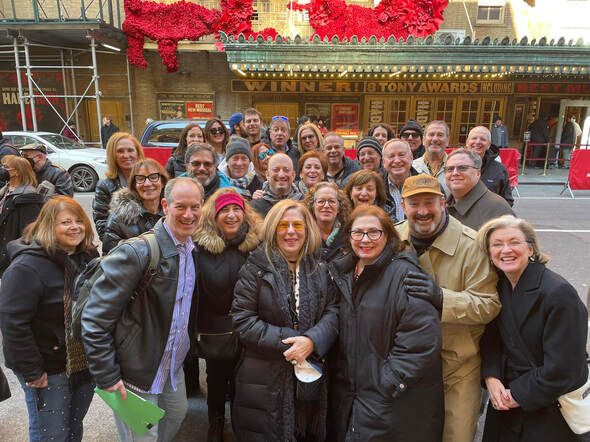
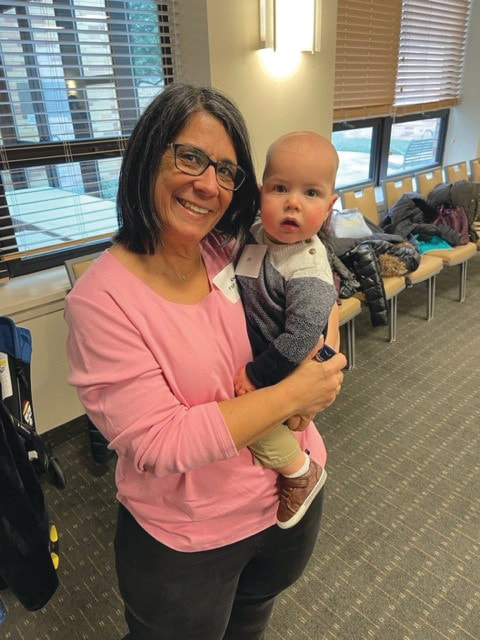
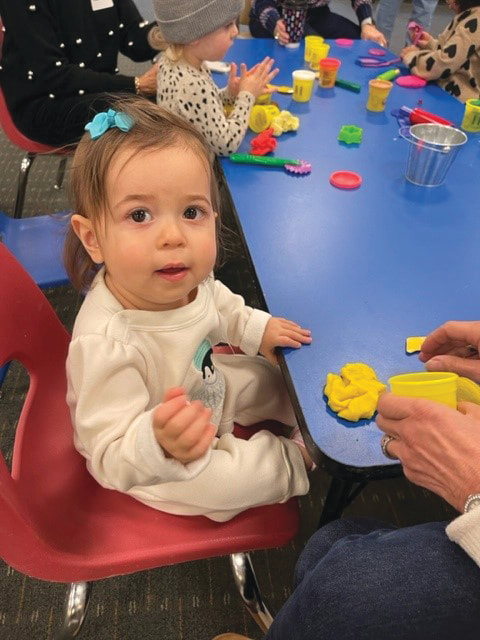
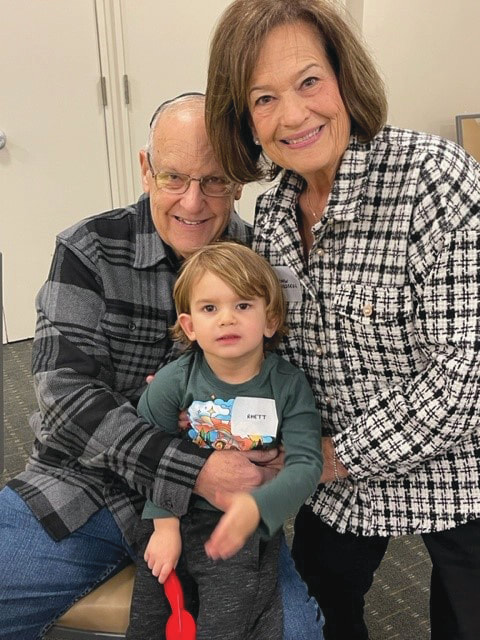
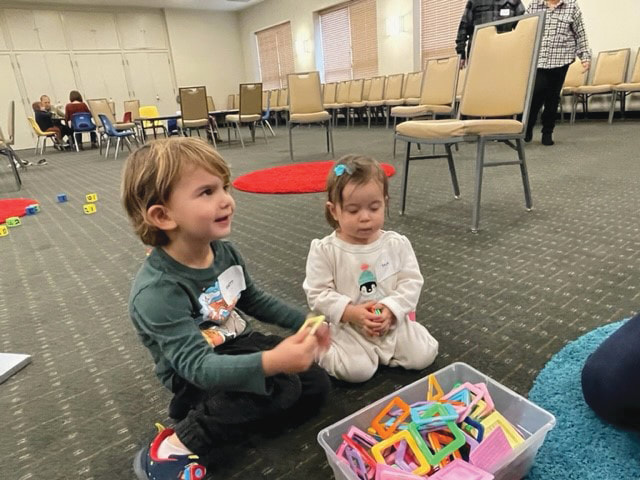
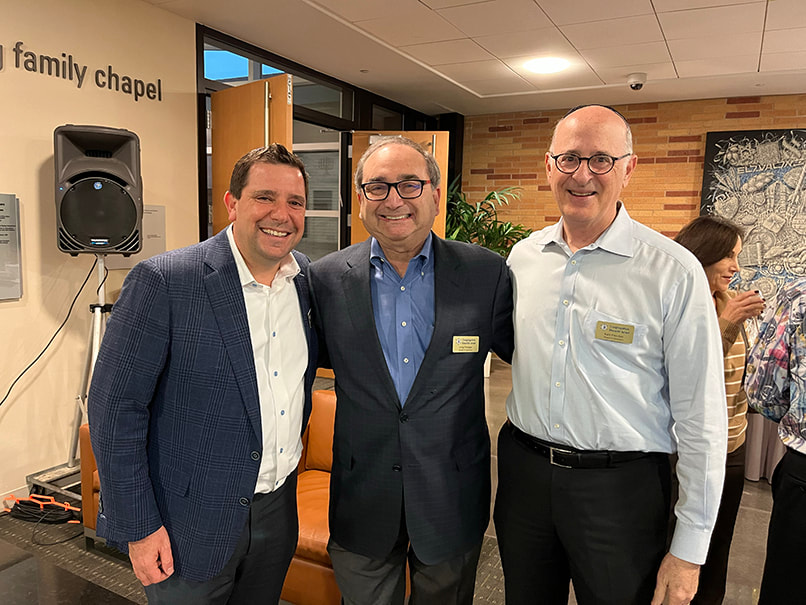
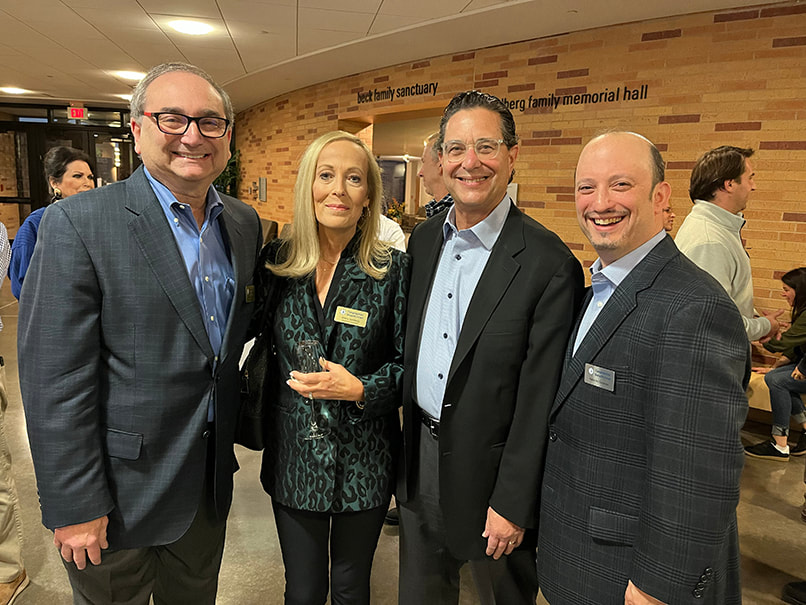
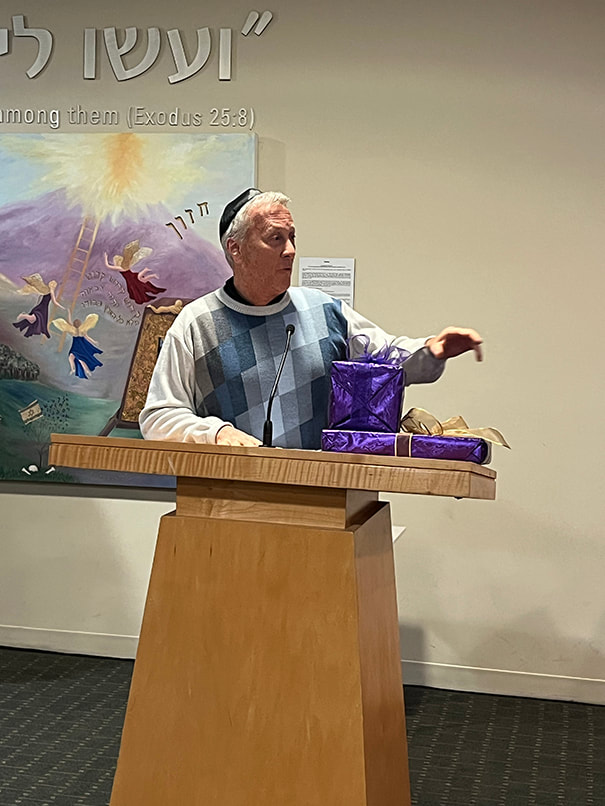
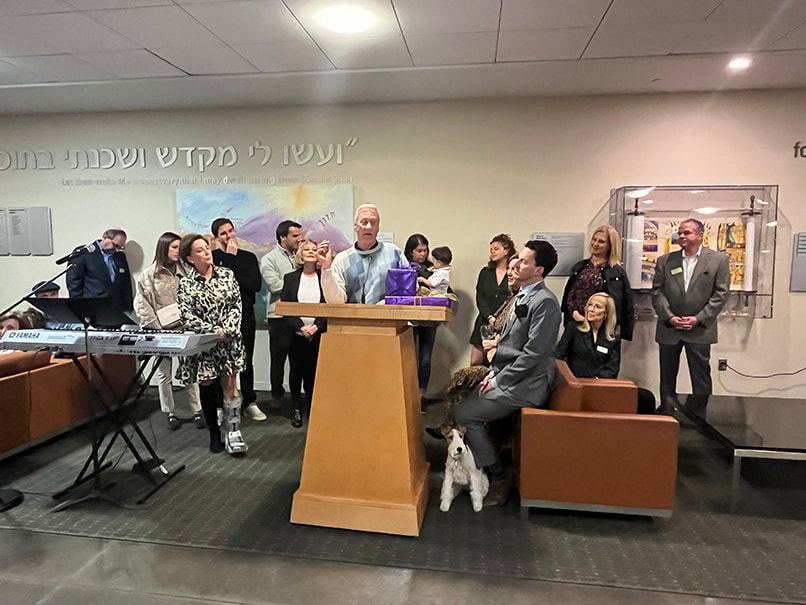
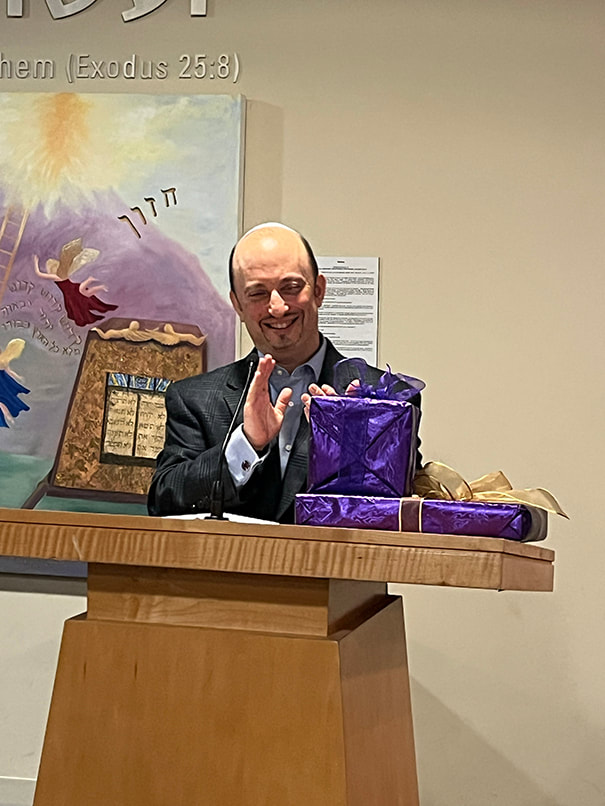
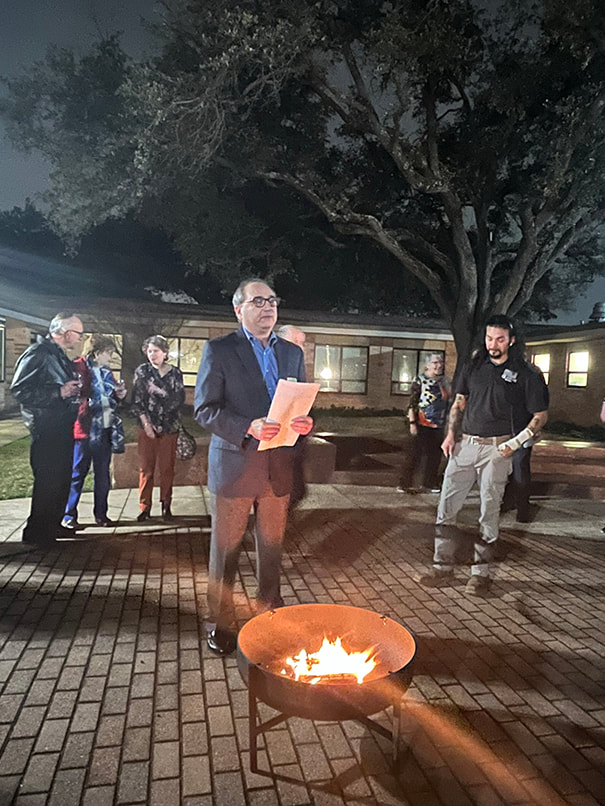
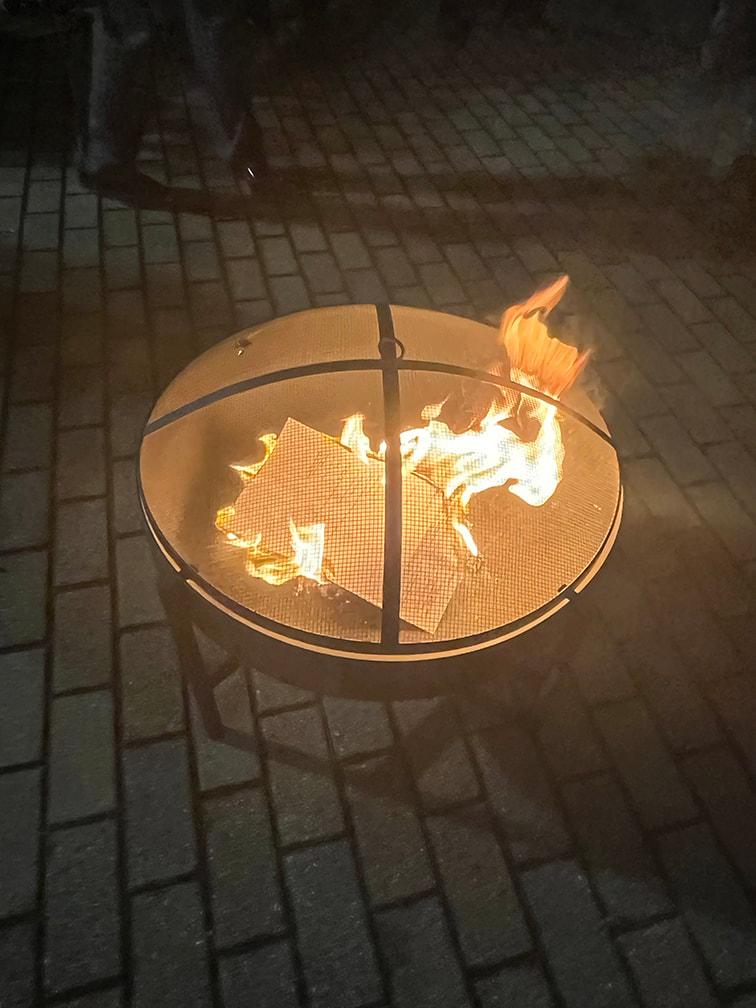
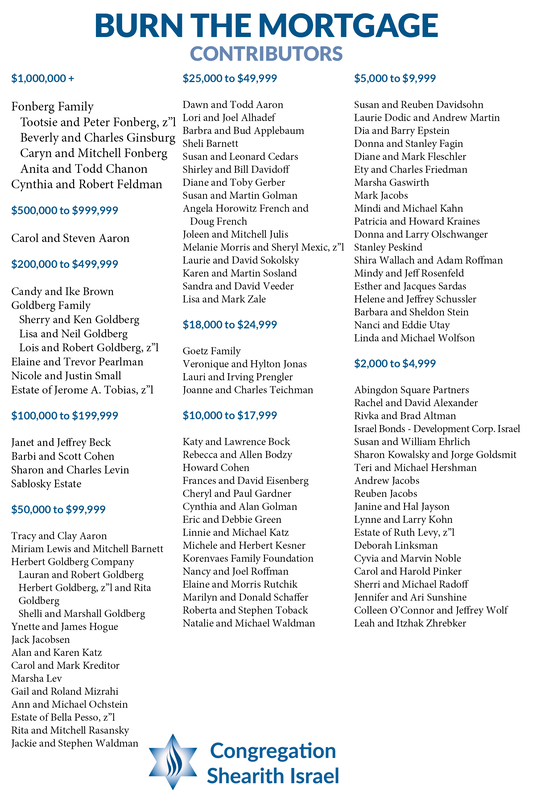
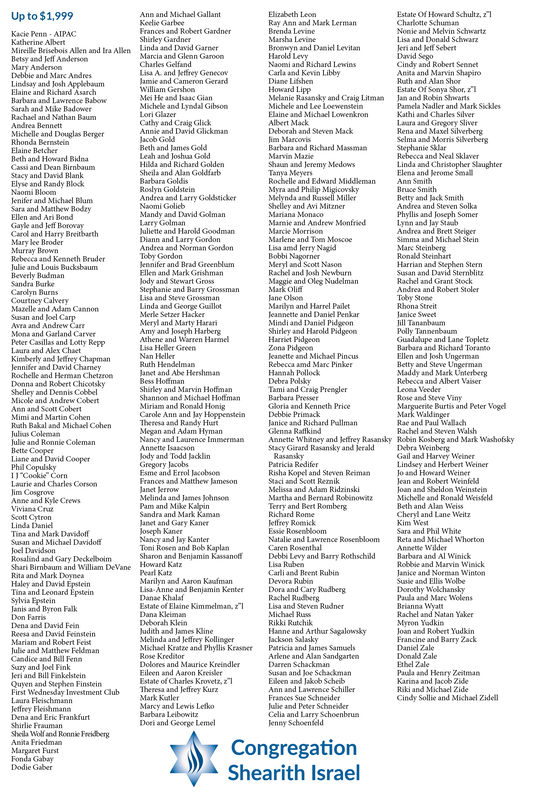
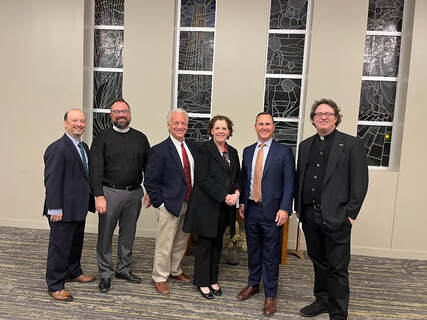
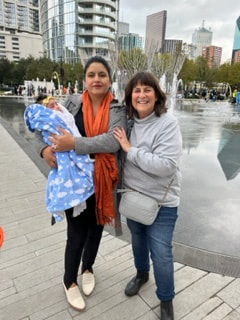
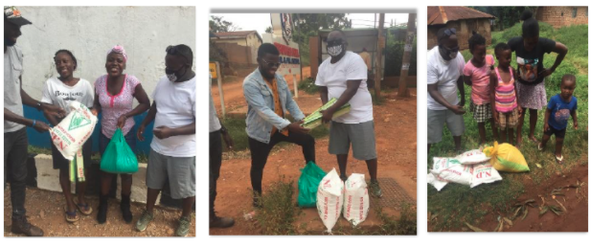
 RSS Feed
RSS Feed